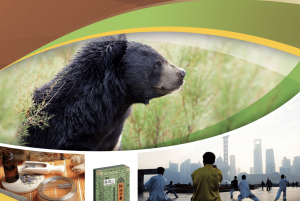Editorial
Wild tigers were supposed to have been put on the path to recovery in 1993 when trade in tiger products was banned. However, the numbers of wild tigers in its entire range, have continued to fall sharply, leading some experts to voice the opinion that the measure has failed. The big question of how to conserve wild tigers, they say, urgently needs to be answered. Different management options must be considered.
One suggestion is that the demand for tiger bones, which are used in traditional Chinese medicines, should be addressed by farming and renewed trade in captive-bred tiger products. The very idea seems odd to many westerners who think of farms largely in terms of cattle and trade in terms of manufactured goods.
Inevitably, it is drawing criticism from environmentalist groups and some in the western media. But the dire warnings that farming and regulated trade would quickly lead to the end for the wild tiger is perverse. After all, the wild tiger is on that path now. How can anyone be confident that maintaining the present course will reverse the downward trend? Is there a point at which reasonable people will say “Enough! This really isnʼt working!”
With the CITES COP14 approaching, knives are already being sharpened. Activist groups are preparing for a full-blown assault on any consideration of alternatives to the tiger trade ban.
The reason for this is clear enough and it has nothing to do with tigers. NGOs will continue to advocate zero use of animals, as they do today, because their fundamental philosophy is based more in the field of ethics than conservation. To them, it is wrong for people to kill an animal, be it a tiger, a whale, an elephant, a shark or some other species. If we were to be precise, we would more accurately label them as ethicists rather than conservationists or environmentalists. They are largely making value judgments about what we, collectively, should or shouldnʼt do. True conservationists are much more pragmatic, being concerned for overall stocks of wild species rather than individual specimens, and tailor their approach accordingly.
Where does this leave the wild tiger? The ethicists abhor all the elements that conservationists are now considering: farming, killing, commerce and trade. There is nothing here on which they could possibly compromise. And yet if they prevail and wild tigers do become extinct, they will take no responsibility for the result. Instead, they will blame everybody but themselves: the poachers, the law enforcement agencies, the purchasers of tiger products, governments, international institutions and mankindʼs reckless ability to destroy living things.
This situation is unacceptable to IWMC. Our wish is to see wild tigers flourish. So we have invited a series of experts to present their perspectives on what needs to be done and we publish their comments below in this special publication, together with an interview with the principals of the two largest tiger farms in China. We hope you find the articles informative and thought provoking.
View as a PDF:



